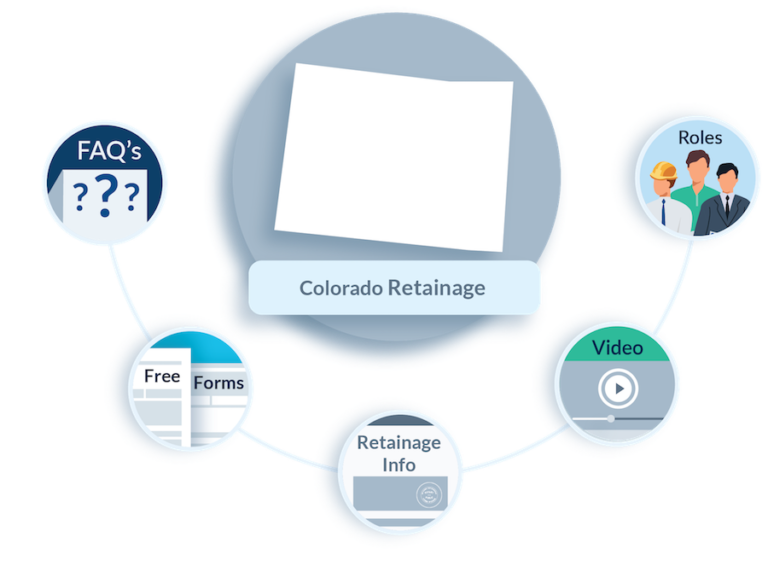Colorado Retainage Requirements
- Private Jobs
- Public Jobs
- Top Links
Retainage Limit
Retainage from any party may not exceed 5% of the price of the work completed.
Pay Period
Not Regulated by State Law
There's No Process to Recover
N/A
Not Held In Escrow
In Colorado, contractors and owners do not need to hold retainage funds in a separate escrow account.
5 Percent
5% of the contract price.
60 Days From Completion & 7 Days After Receipt
Retainage is released by the public entity 60 days after the contract is completed and accepted. Upon receipt, contractors have 7 calendar days to pay subcontractors.
There's No Process to Recover
Not Specified
Retainage, also called “retention,” is an amount of money “held back” from a contractor or subcontractor during the course of a construction project. In general, retainage serves two main purposes:
- To provide an incentive to the contractor or subcontractor to complete the project; &
- To give the owner some protection against problems like liens, contractual defaults, delays, and more.
In most states, laws exist to regulate how the parties use the retainage concept, mostly protecting some parties against abuse of the tool from others. The following are resources, legal information, and frequently asked questions about Colorado’s retainage requirements.
Colorado’s retainage limits & deadlines
Colorado’s retainage statutes only apply to public works projects where the original contract price is $150,000 or more. Retainage practices on private projects aren’t regulated in Colorado, and will therefore be governed bay the terms of the contract.
On public projects, the maximum amount of retainage that can be withheld is 5% from each progress payment. Once the prime contract has been completed and accepted by the public entity, retainage must be released to the prime contractor within 60 days. Upon receipt, retainage must be release to subs and suppliers within 7 days. Failure to timely release retainage to any subcontractor will be subject to an interest rate of 15% per year, or the rate set out in the contract; whichever is higher.

